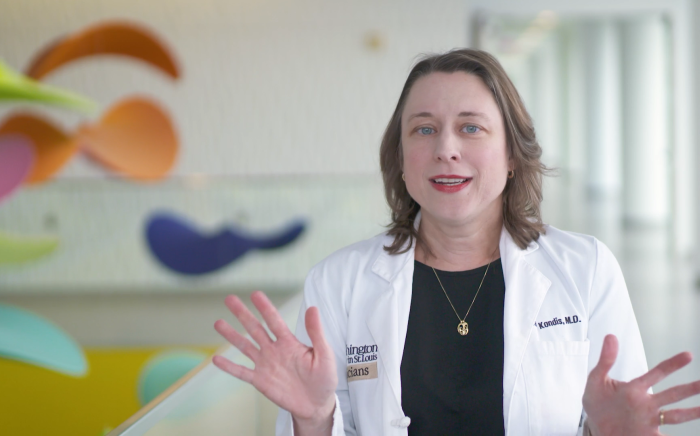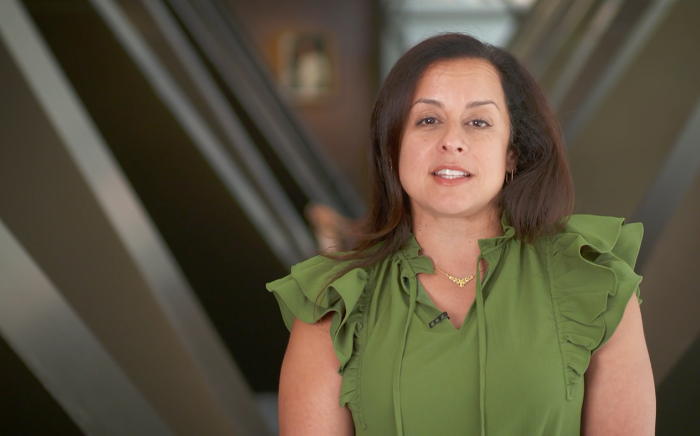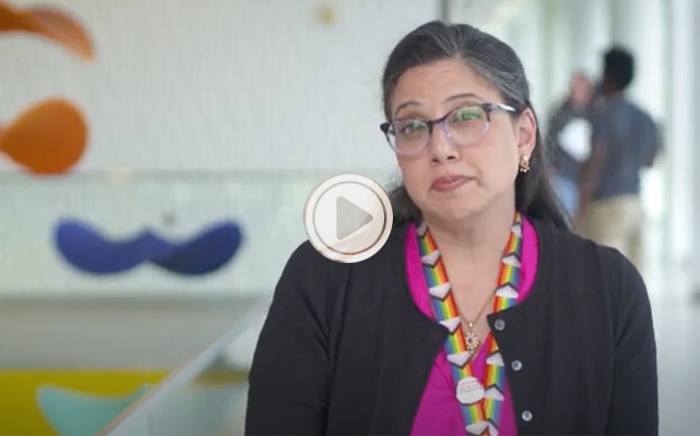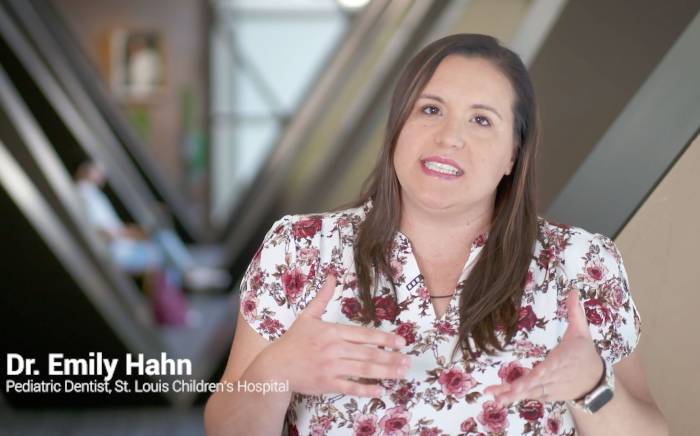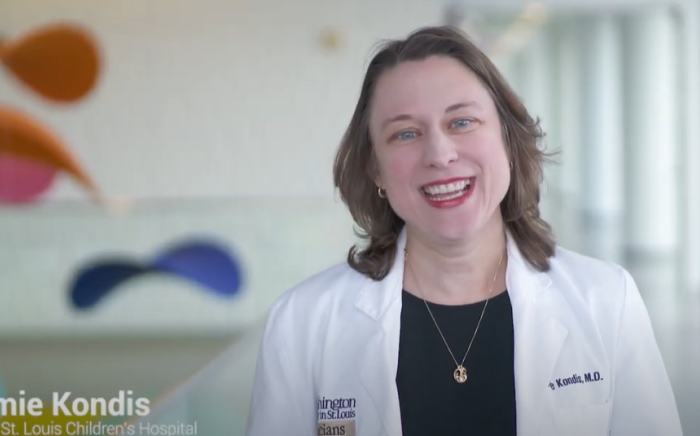We often use stem cell transplants or bone marrow transplants to treat childhood cancers such as leukemia, and noncancerous conditions and blood disorders such as sickle cell disease. These transplants give your child’s body new cells to help fight infections and improve the immune system.
Stem Cell Transplant Treatment
At St. Louis Children’s Hospital, we treat many conditions with stem cell transplants, including:
Blood disorders
- Aplastic anemia: A form of bone marrow failure, people can develop this rare condition at any age. Aplastic anemia prevents bone marrow from making enough new blood cells, resulting in less oxygen throughout the body, increased risk of infection and increased risk of bleeding problems. Some cancers that affect bone marrow can cause aplastic anemia.
- Fanconi anemia: This rare genetic disorder stops bone marrow from making enough new blood cells. It can lead to leukemia (blood cancer) and other health issues.
- Sickle cell disease: An inherited blood disorder present at birth, sickle cell disease causes abnormal red blood cell development. These sickle cells can damage the spleen and cause severe pain, anemia and other symptoms.
- Thalassemia: This inherited blood disorder affects the production of hemoglobin, causing anemia. The are several types, including alpha thalassemia and beta thalassemia.
Cancer and tumors
- Leukemia: The most common type of childhood cancer, leukemia is a blood cancer in which the body produces too many unhealthy white blood cells. Leukemia can affect other parts of the body, including the lymph nodes, liver and spleen. There are several types, including acute leukemia and chronic myelogenous leukemia.
- Lymphoma: This cancer, which is more common in boys, affects the lymphatic system, which helps the body fight infections and diseases. It can spread to other parts of the body. Types of lymphoma include Hodgkin lymphoma and Non-Hodgkin's lymphoma.
- Ewing sarcoma: A type of bone cancer, Ewing sarcoma is rare in children. It grows in bones or tissue connected to bones.
- Germ cell tumors: These tumors can grow in the ovaries, testicles, brain, lungs, abdomen or spine. They may be cancerous or noncancerous.
- Malignant brain tumors: Fast-growing brain tumors may be malignant (cancerous) or benign (noncancerous). Some noncancerous brain tumors are also considered malignant because of their size and impact on brain function.
- Neuroblastoma: This cancer forms in the nerve cells and is the most common type of cancer in children under 12 months. It is rare in children over age 10.
- Primitive neuroectodermal tumors (PNET): These fast-growing brain tumors are often cancerous. PNETs can spread through the brain and spinal cord.
Genetic or immune disorders
- Immunodeficiencies: Immune system disorders harm a child’s ability to fight off infections or cancer. They cause frequent and more severe infections.
- Schwachman diamond: This rare inherited disorder usually appears when children are infants. It can affect the pancreas or cause bone marrow failure.
- Hurler syndrome: This inherited disorder destroys the brain and nervous system due to the lack of an enzyme that is necessary for normal brain function.
- Adrenoleukodystrophy: This disease causes degeneration of neurons and requires an inverention like a transplant.
Contact the Stem Cell Transplant and Cellular Therapy Program
Please call 800.678.5437 to make an appointment or request an appointment online.




